Photo essay: A lumad journey from the mountains to the city
Amid the sea of suits and office uniforms, their vividly colored traditional clothing appear as jarring as a blast of dynamite ripping through the mountains they call home. It is a warm Tuesday morning, and they are standing on a busy avenue in the snotty business district of Makati. 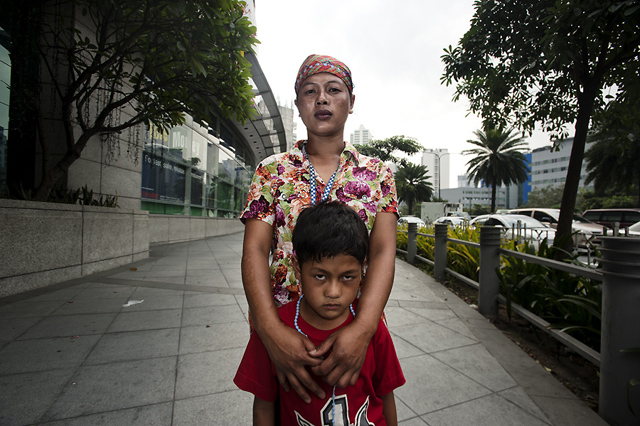
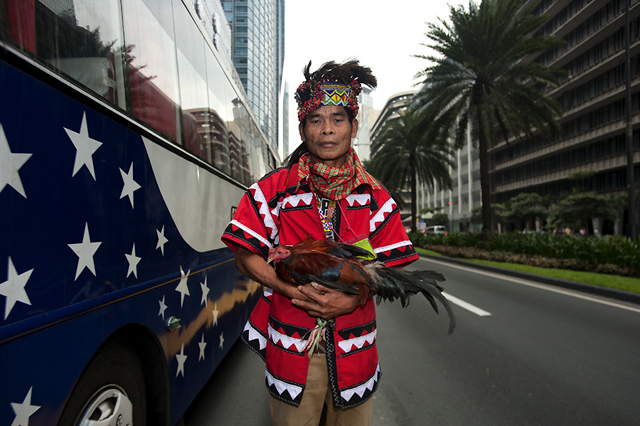
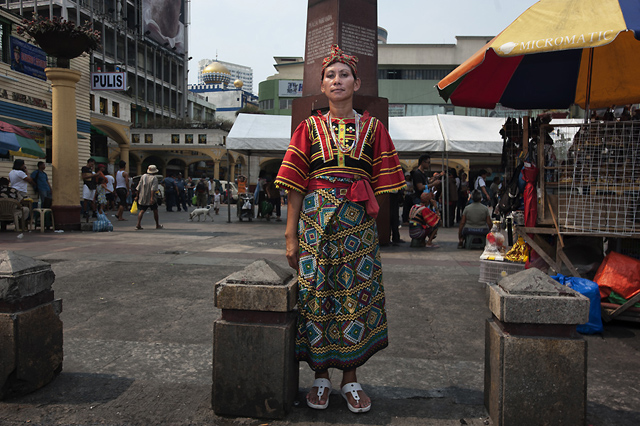
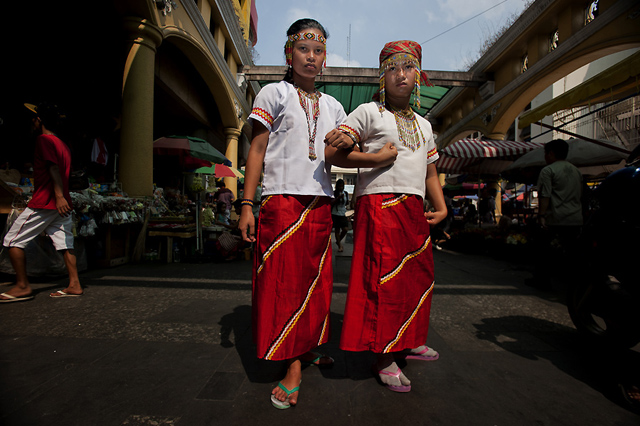
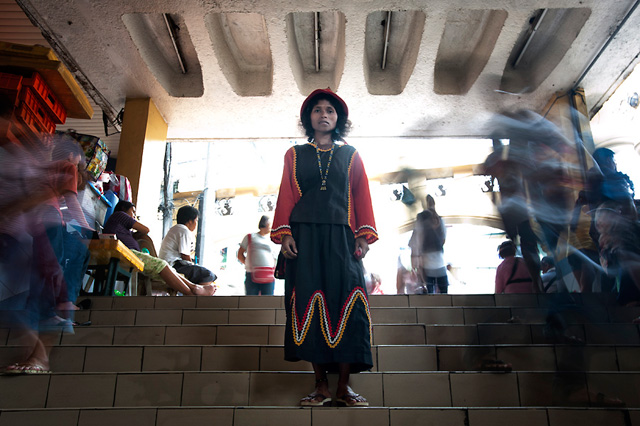
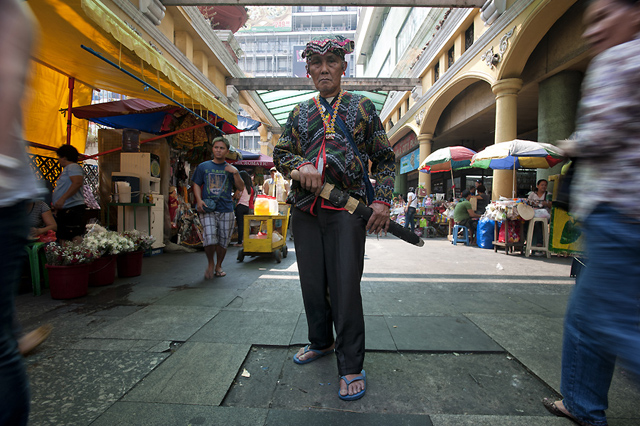
Marginalized and exploited, the Lumads take the insults in stride, having endured attacks against them and their land – all in the name of “development.” Bebeth Kalinawan, a Mamanwa from Cabadbaran in Agusan del Norte, recalls her ordeal as she fought for her life after getting hit by bullets from government troops at the family farm. Because of heavy militarization, her entire community took shelter in evacuation shelters for months. They found their homes, properties, and even their church burned down upon their return. From the perspective of these indigenous peoples, large-scale corporate mining does not contribute anything good to their communities. 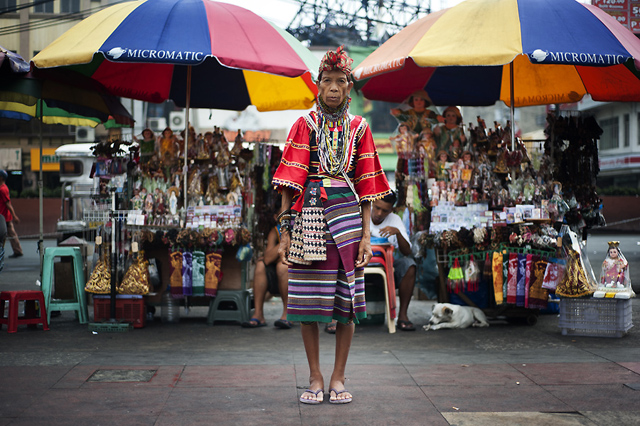 Bae Likayan Bigkay, a 67-year-old Ata-Manobo from Bukidnon, laments all the pain and suffering that mining companies have brought upon them as she joins her fellow lumad in exploring the busy metropolis far from their home. She says the Lumad painstakingly take care of their resource-rich lands, but these continue to be systematically taken away from them. Their way of life has drastically changed, and those who oppose the mining operations are either pushed away from their land or get killed. Mining, and the logging operations that often precede it, have also intensified floods that cause death and devastation. The natural protection provided by the environment is getting destroyed at an alarming rate, and the Lumads are often the most affected upland dwellers.
Bae Likayan Bigkay, a 67-year-old Ata-Manobo from Bukidnon, laments all the pain and suffering that mining companies have brought upon them as she joins her fellow lumad in exploring the busy metropolis far from their home. She says the Lumad painstakingly take care of their resource-rich lands, but these continue to be systematically taken away from them. Their way of life has drastically changed, and those who oppose the mining operations are either pushed away from their land or get killed. Mining, and the logging operations that often precede it, have also intensified floods that cause death and devastation. The natural protection provided by the environment is getting destroyed at an alarming rate, and the Lumads are often the most affected upland dwellers. 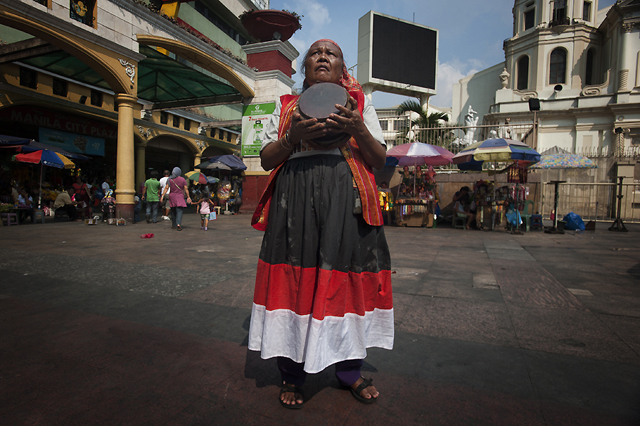 "We are not animals. We are not pigs and chickens that you can just shoot," says Bae Emil Digkalay-oban from the Banwaon tribe, as she talks about the plight of her community in Agusan del Sur. "The color of the blood in our veins—you, me, they, us—is the same.” — Curated by Joe Galvez/BM/YA, GMA News
"We are not animals. We are not pigs and chickens that you can just shoot," says Bae Emil Digkalay-oban from the Banwaon tribe, as she talks about the plight of her community in Agusan del Sur. "The color of the blood in our veins—you, me, they, us—is the same.” — Curated by Joe Galvez/BM/YA, GMA News




